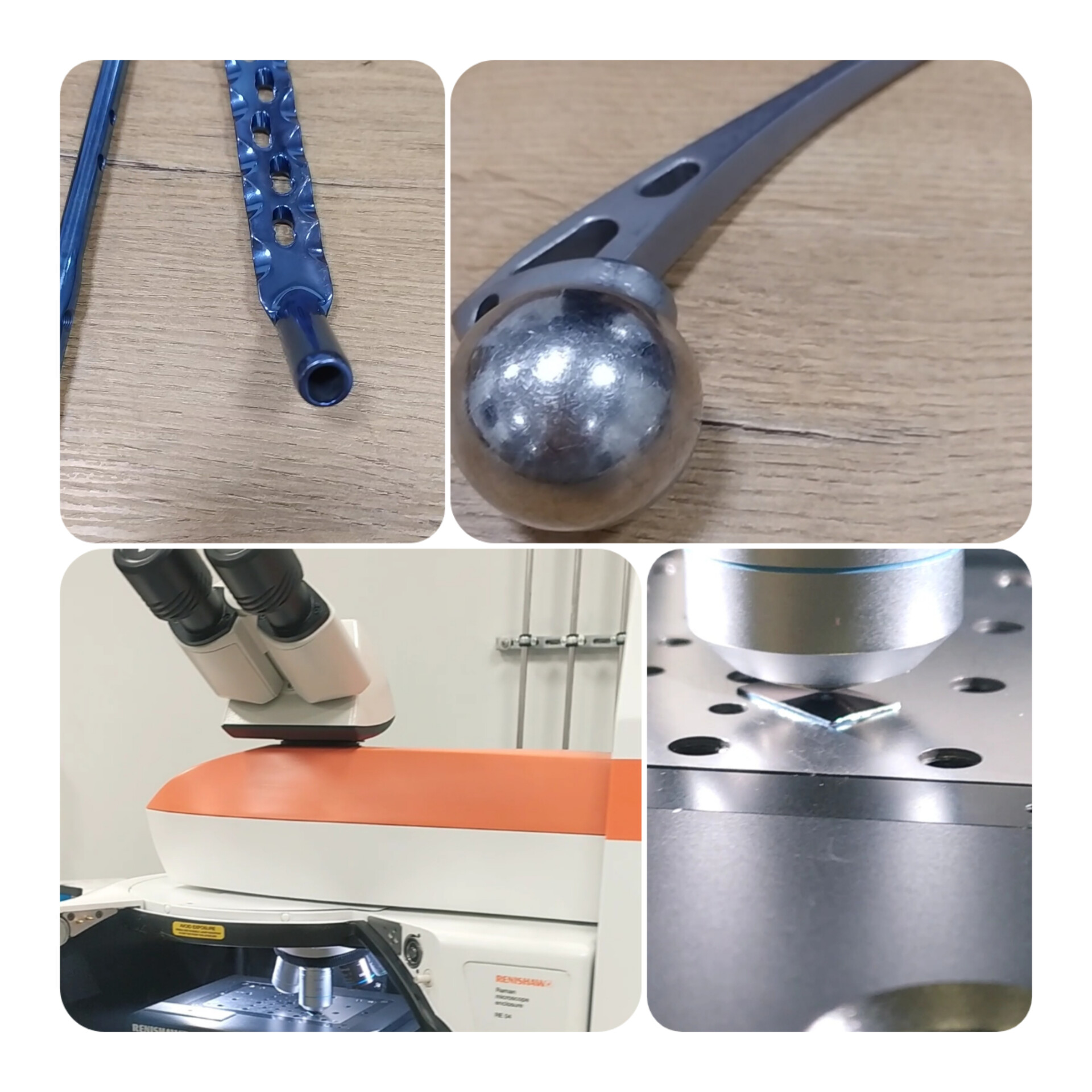The research profile of the Department of Biomedical Engineering and Functional Materials encompasses various areas within materials engineering, with a particular emphasis on surface engineering and biomaterials.
The broadest scope of research focuses on technologies for surface modification of metallic and polymeric materials. Plasma technologies used in the department—such as RF PACVD, MW/RF PACVD, MS-PVD, and DBD—are applied to tailor the surface properties of engineering materials intended for use in biomedicine, photovoltaics, the automotive industry, aviation, and other sectors.
These technologies include the fabrication and functionalization of thin carbon-based, nanocrystalline, diamond-like coatings, and coatings doped with elements such as Ag, Si, Ti, Ca, and F. Plasma is also used to structure substrates and coatings to give them specifically designed physicochemical and biological properties.
Within this research area, the department carries out both scientific projects and industrial implementations, which involve not only the development of new technologies but also the design and construction of dedicated equipment. In addition to plasma techniques, laser technologies are used to modify the properties and structure of bulk materials and nanomaterials.
The department is also actively developing research in the field of additive manufacturing (3D printing). Research projects focus on the parallel development of biomaterials and dedicated printing devices, including proprietary hybrid constructions combining various 3D printing techniques. Most work is carried out in the areas of direct and indirect bioprinting for applications in tissue engineering, pharmacy, and biomedicine in general.
The department also conducts research related to the post-processing of 3D-printed parts made from polymers and metals.
Another area of scientific activity includes the synthesis, functionalization, and study of powders such as carbon, graphene, hydroxyapatite, and iron oxides, and their applications in sensing, composites, drug delivery, and other biomedical uses, as well as the use of laser techniques in surface fabrication and functionalization.
The scientific work is supported by research into the physicochemical, corrosion, electrical, and mechanical properties of engineering materials, particularly their surfaces.
Assessment of the safe use of developed materials in biomedical applications is carried out via standardized biological response testing using in vitro models with various cell lines, conducted within the department.
The department’s teaching activities include lectures, exercises, laboratories, and projects within courses such as: Biomaterials, Hybrid Biomaterials, Biomedical Engineering, Implants and Artificial Organs, Additive Technologies in Biomedicine, Certification and Clinical Application of Medical Devices, Manufacturing and Commercialization of Medical Devices, Additive Manufacturing in Tissue Engineering, Materials Science, Physics, Surface Engineering, Solid State Physics, Vacuum Techniques, among others.
We also run student group projects both in terms of content and methodology, including courses such as: Design Thinking (DT), Problem Based Learning (PBL), Research Problem/Project Based Learning (R-PBL), Group Project, Semester Project, etc.
Scientific collaboration: Polytechnique Montréal (Canada), Technical University of Liberec (Czech Republic), Romanian Academy of Sciences in Bucharest (Romania), Warsaw University of Technology, University of Łódź, AGH University of Science and Technology in Kraków, Nicolaus Copernicus University in Toruń, Gdańsk University of Technology, Wrocław University of Science and Technology.
Industrial collaboration: Medgal sp. z o.o., LFC sp. z o.o., Prevac sp. z o.o., Zemat sp. z o.o., Sygnis sp. z o.o.
Professor Piotr Niedzielski Ph.D., D.Sc.
Associate Professor Dorota Bociąga Ph.D., D.Sc.
Associate Professor Mariusz Dudek Ph.D., D.Sc.
Associate Professor Jacek Grabarczyk Ph.D., D.Sc.
Associate Professor Witold Kaczorowski Ph.D., D.Sc.
Mateusz Bartniak Ph. D
